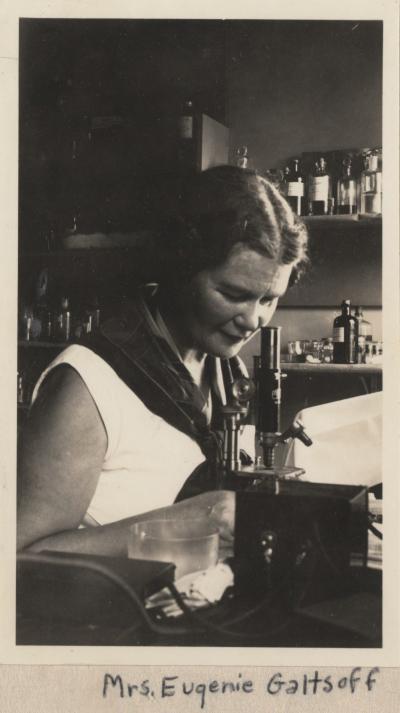Matching Items (2,877)
Filtering by
- Creators: Arizona Board of Regents

Description
The Dorrance Center for Rare Childhood Disorders is a unique research division at TGen (The Translational Genomics Research Institute) that provides personalized care to children and young adults facing rare, undiagnosed diseases. TGen scientists believe that the answers to these enigmatic disorders can often be found in a person's genetic code. They aim to solve these genetic mysteries using whole exome sequencing, a method that prioritizes the protein-coding portion of the genome in the search for disease-causing variants. Unfortunately, a communication gap sometimes exists between the TGen scientists and the patients they serve. I have seen, first hand, the kind of confusion that this study elicits in the families of its participants. Therefore, for my thesis, I decided to create a booklet that is meant to provide some clarity as to what exactly The Dorrance Center for Rare Childhood Disorders does to help diagnose children with rare disorders. The purpose of the booklet is to dispel any confusion regarding the study by providing a general review of genetics and an application of these lessons to the relevant sequencing technology as well as a discussion of the causes and effects of genetic mutations that often times are linked to rare childhood disorders.
ContributorsCambron, Julia Claire (Author) / LaBelle, Jeffrey (Thesis director) / Huentelman, Matt (Committee member) / Barrett, The Honors College (Contributor) / Department of Chemistry and Biochemistry (Contributor) / School of Life Sciences (Contributor)
Created2015-05

ContributorsMarine Biological Laboratory Archives (Publisher) / Arizona Board of Regents (Publisher)
Created1925-19-39 (uncertain)

ContributorsMarine Biological Laboratory Archives (Publisher) / Arizona Board of Regents (Publisher)
Created1934

ContributorsMarine Biological Laboratory Archives (Publisher) / Arizona Board of Regents (Publisher)
Created1926

ContributorsMarine Biological Laboratory Archives (Publisher) / Arizona Board of Regents (Publisher)
Created1926

ContributorsMarine Biological Laboratory Archives (Publisher) / Arizona Board of Regents (Publisher)
Created1926

ContributorsMarine Biological Laboratory Archives (Publisher) / Arizona Board of Regents (Publisher)
Created1928

ContributorsWallace, Charles (Contributor) / Walls, Sarah (Creator) / Arizona State University. School of Life Sciences. Center for Biology and Society. Embryo Project Encyclopedia. (Publisher) / Arizona Board of Regents (Publisher)
Created2022-01-12

Description
Human Papillomavirus, or HPV, is a viral pathogen that most commonly spreads through sexual contact. HPV strains 6 and 11 normally cause genital warts, while HPV strains 16 and 18 commonly cause cervical cancer, which causes cancerous cells to spread in the cervix. Physicians can detect those HPV strains, using a Pap smear, which is a diagnostic test that collects cells from the female cervix.
ContributorsSantora, Emily (Contributor) / Walls, Sarah (Creator) / Arizona State University. School of Life Sciences. Center for Biology and Society. Embryo Project Encyclopedia. (Publisher) / Arizona Board of Regents (Publisher)
Created2021-04-06
Description
Johann Gregor Mendel studied patterns of trait inheritance in plants during the nineteenth century. Mendel, an Augustinian monk, conducted experiments on pea plants at St. Thomas’ Abbey in what is now Brno, Czech Republic. Twentieth century scientists used Mendel’s recorded observations to create theories about genetics.
ContributorsWallace, Charles (Contributor) / Walls, Sarah (Creator) / Arizona State University. School of Life Sciences. Center for Biology and Society. Embryo Project Encyclopedia. (Publisher) / Arizona Board of Regents (Publisher)
Created2022-01-13